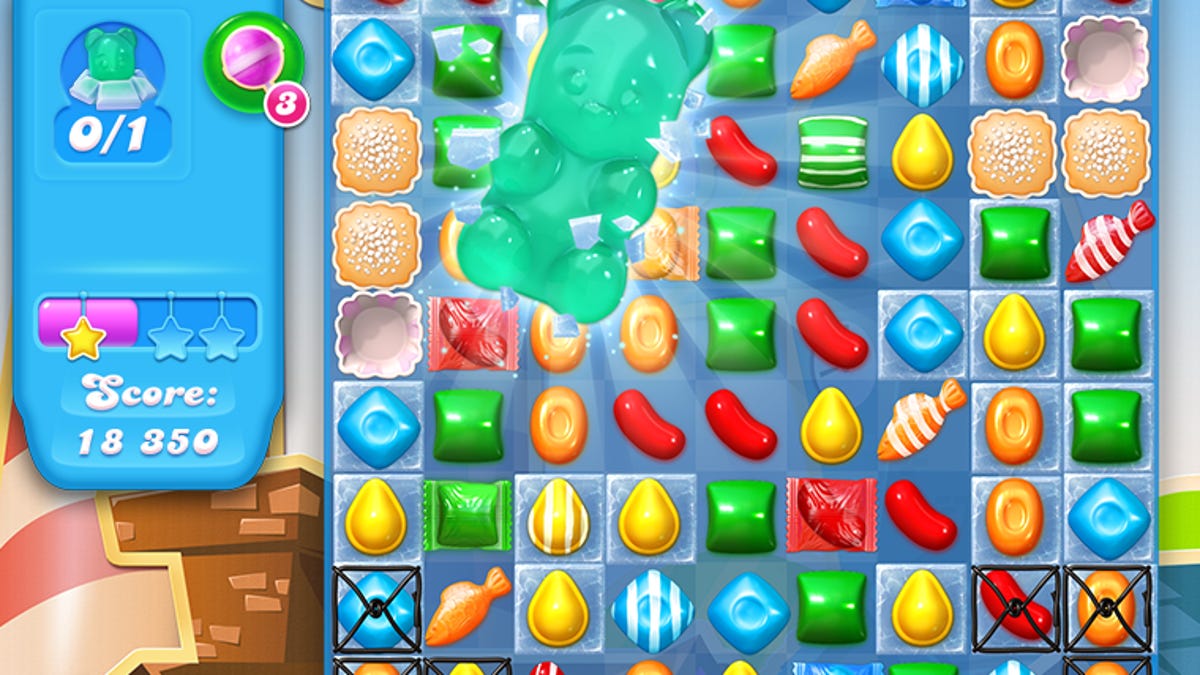Candy Crush creator gets gobbled by Activision for $5.9B
The game hooked you on Facebook, then reeled you in again on your smartphone. Now its maker, King Digital, has fetched itself a multibillion-dollar buyout.
One of the biggest names in video games is getting even bigger.
Activision Blizzard announced late Monday it plans to acquire King Digital Entertainment, the maker of the enormously popular Candy Crush Saga mobile games, for $5.9 billion.
With mobile games reaching ever deeper into daily lives of consumers, the appeal was obvious for Activision, the company behind popular military shooter franchise Call of Duty and the fantasy game World of Warcraft.
Spending on mobile gaming titles is expected to hit $29 billion this year, according to research from intelligence firm Digi-Capital. By 2018, revenue from mobile games is expected to reach $45 billion, the tech adviser said in May.
"Mobile gaming is the largest and fastest-growing opportunity for interactive entertainment," Robert Kotick, Activision's CEO, said in a statement, "and we will have one of the world's most successful mobile game companies and its talented teams providing great content to new customers, in new geographies throughout the world.
Founded in 2003, King relies on the so-called freemium business model, under which you play games for free but get charged for additional features or virtual goods. While King has more than 180 games to its name, the crown jewel in its lineup is Candy Crush Saga. That title, according to the company, has 158 million daily users and more than 1 billion daily game plays.
The social-gaming company has your Facebook habits to thank for much of its success. Candy Crush Saga was originally designed to be played on the social-networking giant's website before it was released for mobile devices.
After it debuted on Facebook in April 2012, Candy Crush quickly rose in the social gaming ranks, helped by a mobile launch in November of that year on Apple's iOS mobile software and, a month later, on Google's Android software. A year after its release, it had surpassed FarmVille 2, the flagship game from King rival Zygna, on Facebook and would go on to be the most downloaded iOS app of 2013.
Activision, best known for making games for consoles from Microsoft, Nintendo and Sony, has been expanding its digital horizons in recent months. The Santa Monica, California-based company has begun shifting its sales to the Internet, which now accounts for three-quarters of its revenue.
It is also venturing into a hot new arena: e-sports video games, in which professional gamers face off in front of spectators. Last month, it created an e-sports division under the direction of veteran executives from ESPN, the NFL Network and Major League Gaming.
In a note to investors about the deal, Wall Street firm Credit Suisse pointed to a shift by video game makers toward a more direct, e-commerce relationship with consumers.
"This transaction...should accelerate Activision's transformation into being a better e-commerce merchant of digital merchandise," Credit Suisse wrote.
Activision will pay $18 a share for Dublin-based King Digital, a 16 percent premium to its closing stock price Monday of $15.54. After going public in March 2014 at $22.50, the company has seen its stock price languish in the middle to low teens for much of the year.
Editors' note: This story was updated at 11 p.m. PT on November 2 to correct projected mobile games revenue and again at 5:39 a.m. PT on November 3 to add comment by Wall Street analysts.


